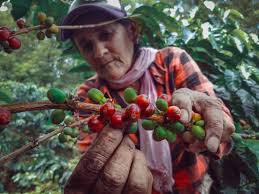
The Exploitation of Women and Labor in Coffee Production
Share

If you’re reading this blog, you are most likely a fan of coffee. Our own love of coffee led us to starting Empower Coffee Roasters. But it’s important to understand that the coffee we drink is produced on the backs of exploited farm workers across the globe. Many of the 26 million laborers in coffee production are migrants who have no official documentation, which leaves them without a recourse to dispute wage underpayment, overtime pay or unsafe working conditions.
While we were researching starting our roastery, we learned quickly that women were more acutely vulnerable to such exploitation. According to the International Coffee Organization, 70% of the labor in coffee production are women, yet only 20-30% of farms are women operated. The IPO also states that women-owned farms have less access to land, capital, and knowledge than male-owned farms. As such, there remains gaps in productivity, crop yields and revenue between male and female-owned farms. For example, coffee yields are up to 25% less for women-owned farms.

Women are more susceptible to labor trafficking, poor working conditions and even debt bondage, which is where laborers are forced to work off the cost of their housing and food. Often, they are not even paid enough to afford transportation off the coffee plantation. According to the organization Verité, women are often forced to perform lower skilled tasks, work more overall hours than men, be paid less, and experience higher rates of sexual assault. Because many countries do not offer the same educational opportunities to girls, they are destined for a life of exploitative labor on coffee farms with little hope out of poverty.
After learning about the rampant abuse of women in coffee production, we made sure to only support farms and coffee importers that combated this exploitation. The easiest and best way to accomplish this was sourcing coffee only from women-owned farms with proven record of paying fair wages and using fair labor practices. Our partners at Café Feminino run a program that not only pays premium rates to women-run farms and co-ops, but also runs programs to give women more autonomy and equality within their own families and communities.
We urge our customers to learn more about the exploitation of women and labor in coffee production by researching the work done by the IPO and organizations like Verité.
